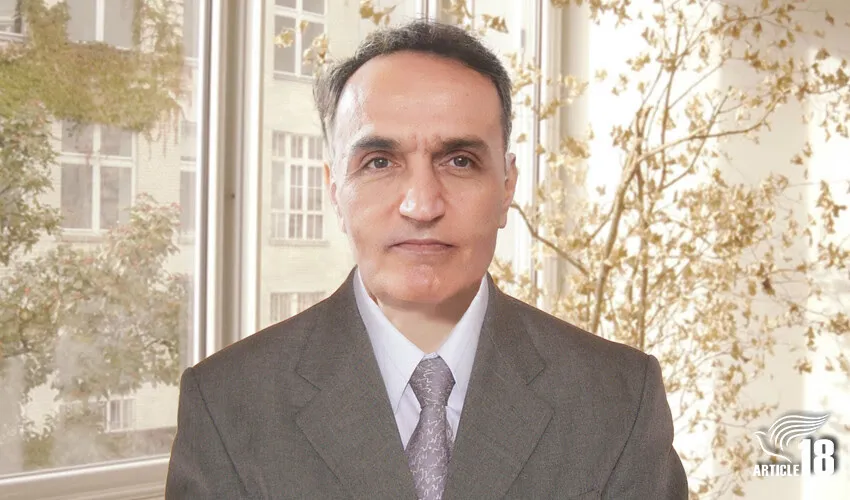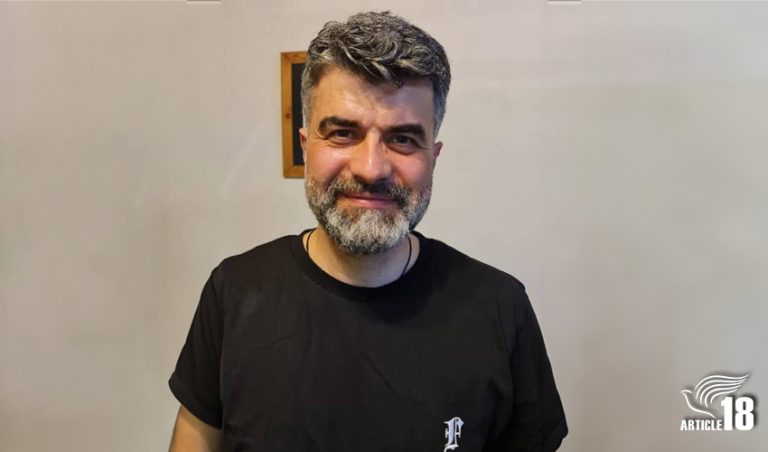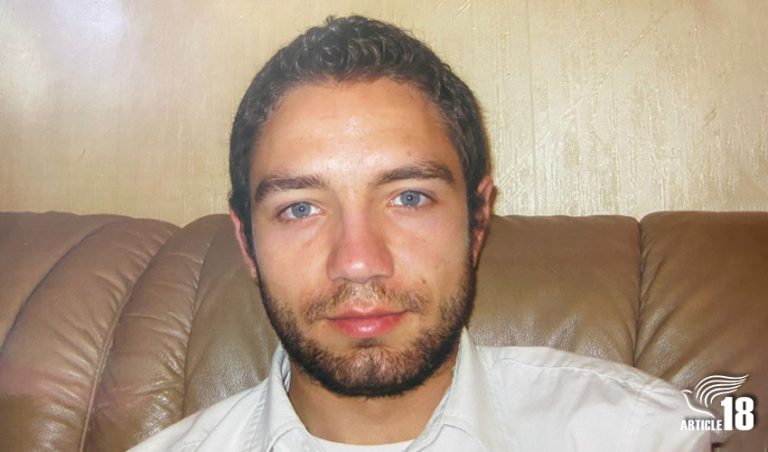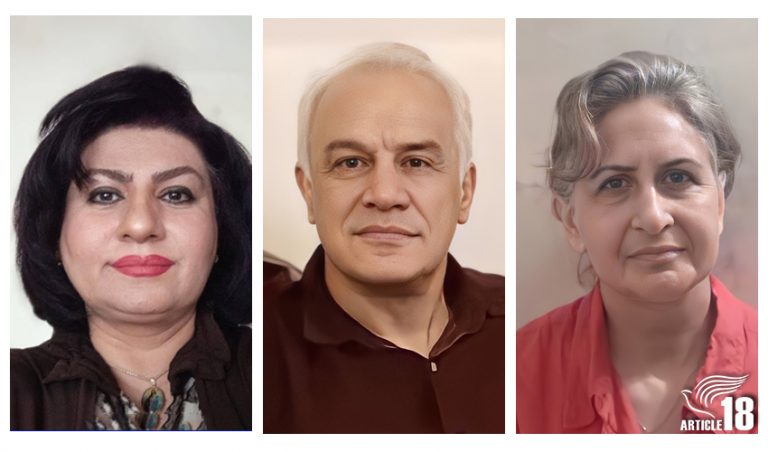
Case referenced by
Article18, Iran International, The Christian Post, Asia News, International Christian Concern, Info Chrétienne, Church in Chains, Middle East Concern, Stefanus Alliance, Barnabas Fund, The Baptist Paper, Voice of the Martyrs
Summary
Iranian-Armenian Christian Anooshavan Avedian, who is in his sixties, was sentenced to 10 years in prison under the amended Article 500 of the Islamic Penal Code for his leadership of a house-church, or what the Revolutionary Court judge referred to as “propaganda contrary to and disturbing to the holy religion of Islam”.
Case in full
Anooshavan was first arrested on 21 August 2020, when approximately 30 agents of the Ministry of Intelligence Service (MOIS) raided a private gathering at his home in Narmak, north-eastern Tehran, where around 18 Christians, including members of Anooshavan’s family, had gathered to pray and worship.
The agents confiscated all the Christians’ Bibles and communication devices, and demanded that everyone fill out forms providing their personal information, including passwords to their phones and social-media accounts.
Several of the Christians were then transferred to Tehran’s Evin Prison, including Anooshavan and Christian converts Abbas Soori, 45, and Maryam Mohammadi, 46.
Maryam and Abbas were released two days later, but summoned again the following week and detained for a further 26 days in solitary confinement.
They were also subjected to psychological torture during several intense interrogation sessions.
The three Christians were eventually released on 23 September 2020 after depositing property deeds to cover bail demands of 1 billion tomans ($50,000) for Anooshavan, and 500 million tomans ($25,000) each for Abbas and Maryam.
Others present at the gathering were also summoned to the offices of the MOIS for interrogations in the days and weeks after the raid, and many were forced to sign commitments to refrain from attending any further house-church meetings or even making any further contact with other Christians.
On 10 April 2022, Anooshavan, Maryam and Abbas Soori were summoned to the 26th Branch of the Revolutionary Court of Tehran to face charges of “propaganda activity against the system” and “acting against the country’s security through organisation and leadership of an Evangelical Christian house-church”.
On 11 April 2022, Judge Iman Afshari sentenced Anooshavan to 10 years in prison and the two converts to a range of non-custodial punishments.
In addition to his 10-year sentence, Anooshavan was also sentenced to 10 years’ “deprivation of social rights” after his release, for example by restricting the types of employment he can have.
Abbas and Maryam were also handed this 10-year deprivation, as well as two-year bans on any travel abroad, membership of any political or social group, and also of residence in their home province of Tehran or any adjacent province.
The two converts were also fined 50 million tomans ($2,000) each and told they must regularly report to the offices of the MOIS.
All three Christians appealed.
In his sentencing, Judge Afshari found Anooshavan guilty of “establishing and leading an illegal group with the aim of disrupting the security of the country through educational and propaganda activities contrary to and disturbing to the holy religion of Islam, through the dissemination of false claims … as well as contact with foreign countries, or organisational guidance from abroad”.
This wording was taken predominantly from the amended Article 500 of the penal code, under which several other Christians have already been convicted for their religious activities since the amendments were passed early last year.
Maryam and Abbas were also convicted under the same article for membership of Anooshavan’s “illegal” group (house-church).
The Christians’ defence was met with disrespectful remarks towards their character, and insults to their faith.
The only “evidence” brought against them were the reports compiled by MOIS agents, including “confessions” extracted under duress.
The charges against the three Christians blended elements of Articles 498, 499 and 500 of the penal code, relating to organisation (498) and membership (499) of “anti-state” groups, and propaganda (500) “contrary to Islam”, though only Article 500 was mentioned in the court document.
On 29 May 2022, Anooshavan’s lawyer was informed that an appeal court had upheld his 10-year prison sentence.
Despite repeated requests by the lawyer, Iman Soleimani, for the appeal hearing to take place in person, the ruling was made in absentia.
In the verdict, Judge Abbasali Hozan of Branch 36 of Tehran’s appeal court upheld Anooshavan’s 10-year sentence, as well as the subsequent 10 years’ “deprivation of social rights” after his release.
However, Abbas and Maryam’s own 10-year deprivation of social rights was removed and their fines for being in possession of satellite receivers were reduced from 50m tomans ($2,000) to 6m tomans ($190) each.
According to Mr Soleimani, at least seven folders, including around 600 pages of documents each, had to be thoroughly studied and an extensive defence bill detailing numerous legal challenges considered, before the ruling could be passed.
Therefore, the lawyer argued, the fact that the verdict was issued in less than 10 days “demonstrates insufficient study of the case by the appeal judges, dismissal of the defence, and unjust process”.
Mr Soleimani added that as Anooshavan was not permitted to have a lawyer in his initial trial at the Revolutionary Court, he was unable to defend himself adequately against the volume of accusations built up against him by interrogators.
His case was then passed on to the court responsible for executing judgements, meaning that Anooshavan could be summoned to serve his sentence at any moment.
On 2 August 2022, Anooshavan and Abbas were informed that their appeal for a retrial with the Supreme Court had been rejected. Maryam’s had been rejected two weeks prior.
A year later, on 13 September 2023, two plainclothes Ministry of Intelligence officers visited Anooshavan at his home and told him he must begin his prison sentence. He handed himself in five days later.
Anooshavan’s summons came on the very same day that another Iranian-Armenian pastor, Joseph Shahbazian, was released from his own 10-year prison sentence, leading Article18’s director, Mansour Borji, to note that “the general policy of the Iranian government towards Christians has not changed”.
“Although we have seen a number of Christians released this year,” he said, “the fact that somebody has now gone to prison on the same charges or for the same activities for which others have been pardoned or released, or had their sentences reduced, shows the arbitrary nature of the judicial system in Iran.”
Mr Borji added that it was not clear why Anooshavan’s summons had taken so long, but that “the human effect of this long wait cannot be underestimated”.
“While people appreciate enjoying as much time as possible with their family and loved ones, the constant threat of imprisonment hovering over your head is in itself a kind of torture,” he said.
On 24 September 2024, Anooshavan was released from prison after being acquitted during a hearing that same day at Branch 21 of the Appeal Court of Tehran. This came after the Supreme Court accepted his latest petition for a retrial, lodged in April 2024, having previously denied all other petitions.
Recommendations
Article18 requests that the international community and Christians worldwide:
- Call for the immediate release of all Christians detained on charges related to the peaceful practice of their faith.
- Call for the swift application of due process in the cases of all who are detained and/or awaiting charges, trials, sentences or appeal hearings on account of their Christian faith and activities in Iran.
- Encourage Western countries to prioritise human rights in negotiations with Iran, especially freedom of religion or belief, and urge the government of Iran to recognise all minority-faith adherents, including converts to Christianity, as full citizens before the law, enjoying their full human rights.
- Call the international community to hold the Iranian government accountable for failing to uphold its international and constitutional commitments to protect the freedom of Christians in its territories. Closing churches, appropriating church property, arresting church leaders and threatening churchgoers are violations of freedom of religion or belief, as prescribed in Article 18 of the International Covenant on Civil and Political Rights, to which Iran is a signatory, without reservation, and therefore legally bound to uphold. Meanwhile, Article 13 of Iran’s Constitution states that Zoroastrians, Jews and Christians are recognised religious minorities, who are free to perform their religious rites and ceremonies. And Article 23 says “investigation of individuals’ beliefs is forbidden, and no-one may be molested or taken to task simply for holding a certain belief”.
Background
Though Christians are one of three recognised religious minorities in Iran, in practice only ethnic Armenians and Assyrians are permitted a degree of freedom to worship, but only within their own ethnic tongues, and not the national language of Persian.
Over the past decade, the Iranian authorities have closed down almost all churches that offered services in the national language of Persian, or insisted they teach only in the ethnic minority languages.
But the vast majority of Christians in Iran today are converts from at least nominally Islamic backgrounds, and therefore these Christians (who are thought to number several hundred thousand) have no official place to worship.
As a result, many now meet in their homes, in what have became known as house-churches.
Judge Afshari even admitted in his verdict that Anooshavan’s house-church had only been created because of the forced closure in 2013 of the Central Assemblies of God Church in Tehran.
But even though the house-churches set up in the wake of such closures are no different in practice from any other Christian worship meetings around the world, they have been outlawed by the authorities, which referred to them in an official response to the UN last year as “enemy groups” of a “Zionist cult”.
Thousands of house-church members across the country have been arrested in recent years, and hundreds sentenced to years in prison on charges of “acting against national security” – only as a result of their religious faith and activities, in spite of the repeated claims of Iranian regime officials that no-one is detained in Iran on account of their beliefs.



0 Comments
Trackbacks/Pingbacks